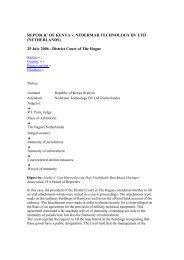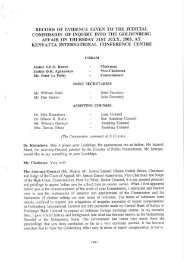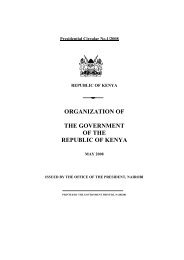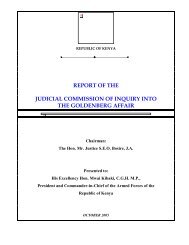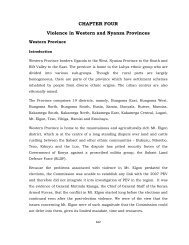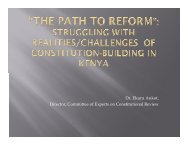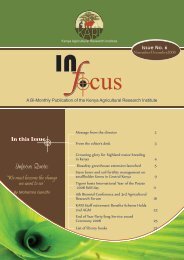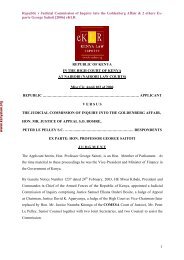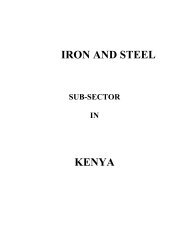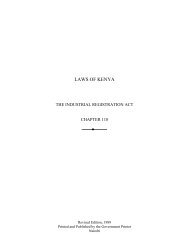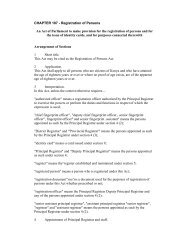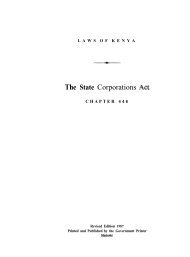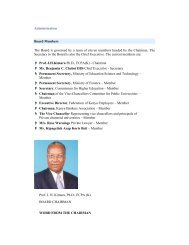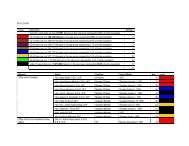PART III Extent and Impact of Post Election Violence - Mars Group ...
PART III Extent and Impact of Post Election Violence - Mars Group ...
PART III Extent and Impact of Post Election Violence - Mars Group ...
You also want an ePaper? Increase the reach of your titles
YUMPU automatically turns print PDFs into web optimized ePapers that Google loves.
property destroyed, losing their family members, <strong>and</strong> suffering from other types<br />
<strong>of</strong> violence. Twelve <strong>of</strong> the thirty came from Nairobi, two from Naivasha, six from<br />
Nakuru, four from Eldoret, six from Kisumu, one from Mombasa, but none from<br />
Kisii, even though sexual violence occurred there too. While the Commission<br />
feels that much <strong>of</strong> what it heard was broadly indicative <strong>of</strong> what happened, its<br />
assessment comes from a small group <strong>of</strong> people who do not constitute a<br />
statistically representative sample. For reasons noted earlier, victims <strong>of</strong> sexual<br />
violence are <strong>of</strong>ten reluctant to testify.<br />
The Commission was able to find thirty women who agreed to testify. However,<br />
while men <strong>and</strong> male children were also targets <strong>of</strong> sexual violence, none were<br />
willing to be interviewed by the Commission’s investigators or to testify before<br />
the Commission. This was the situation in Naivasha where there were many<br />
forced male circumcisions, including on a teenaged boy who was near where the<br />
Commission’s investigators were taking statements, but was too traumatized to<br />
record his story.<br />
Of those testifying to the Commission or whose statements were recorded, the<br />
majority were not well <strong>of</strong>f, if not poor. Before the post election violence many<br />
were engaged in small business activities. These included selling cereals,<br />
vegetables, <strong>and</strong> second-h<strong>and</strong> clothes, working in beauty shops <strong>and</strong> bars,<br />
engaging in subsistence farming, <strong>and</strong> working as casual labourers on farms or<br />
as house maids. In Nairobi, all those interviewed lived in the slums <strong>of</strong> Mathare<br />
<strong>and</strong> Kibera, while the victims in Nakuru, Naivasha, Eldoret, Kisumu, <strong>and</strong><br />
Mombasa lived on the outskirts <strong>of</strong> the towns or in the rural areas. Eighteen <strong>of</strong><br />
the women interviewed were attacked in their homes, seven while fleeing from<br />
violence, three while looking for food or children lost as a result <strong>of</strong> the prevailing<br />
mayhem in their neighbourhoods, one while being dragged out <strong>of</strong> her house by<br />
someone she knew, with the remaining suffering other experiences. Twenty four<br />
<strong>of</strong> the thirty victims who gave statements to the Commission or to its<br />
investigators were gang raped. Seventeen rapes were committed by civilians<br />
involving 2 to 12 individuals while 7 were committed by state security agents<br />
251



